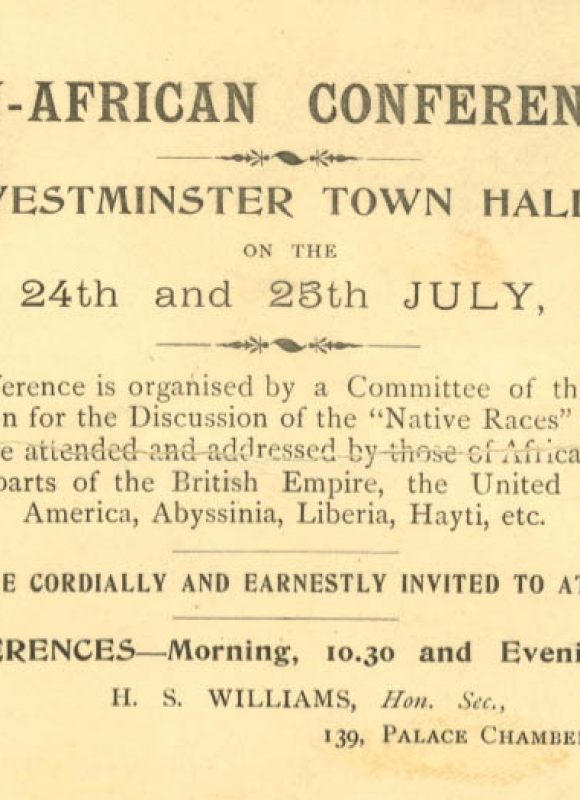PIONEER
Alice Alexander Kinloch

Political commentator | Journalist | Community activist
Born: 1863 Died: Unknown
“With some men of my race in this country (England), I have formed a society for the benefit of our people in Africa … I am trying to educate people … in regard to the iniquitous laws made for blacks in South Africa.”
Who is
Alice Alexander Kinloch?
Human rights activist who founded the African Association in London and organised the Pan-African Conference.
Professions
and Roles
Activist, public speaker, writer, founder of the African Association in London.
Best Known For
Founding the African Association in London in 1897, and organising the Pan-African Conference of 1990.
Life highlights
- Kinloch was born in the Cape in 1863, the second of six children of William and Sarah Alexander.
- At some point in the 1870s the family moved to Kimberley, perhaps attracted by the diamond rush.
- In June 1885, she married Edmund Ndosa Kinloch at St Cyprian’s church, Kimberley. After marrying Edmund, Kinloch went to the United Kingdom in 1895. She linked up with the Aborigines’ Protection Society (APS), an international abolitionist and human rights organisation. Through the APS, she was invited to speak to large audiences in London, Newcastle upon Tyne, York, and in Manchester.
- Together with Henry Sylvester-Williams from Trinidad, and Thomas John Thompson from Sierra Leone, both aspirant lawyers in London, Kinloch founded the African Association and organised the first Pan-African Conference in 1990. Kinloch served as the first treasurer of the African Association.
- In the late 1890s, Kinloch wrote a pamphlet called ‘Are South African Diamonds worth their Cost?’ In it, she detailed the conditions of life on mining compounds, which she described as “slave-like” and advocated against pass laws in Natal.
- Kinloch returned to South Africa in February 1898, first living with her husband in the Transvaal, and then, after March 1899, on a farm called ‘Nil Desperandum’, at Verulam, Victoria County, Natal, where they were keeping bees, and raising poultry and pigs.
- It appears that Kinloch and her husband moved to Kenya and possibly on to Tanganyika in the late 1920s or early 1930s.
“With some men of my race in this country (England), I have formed a society for the benefit of our people in Africa … I am trying to educate people … in regard to the iniquitous laws made for blacks in South Africa.”
– Alice Kinloch, Quaker Weekly, 15 October 1897
IN THE WORDS OF OTHERS
“It was, in part, through the work of Kinloch that a spotlight was shone on the malevolence of much missionary work and its complicity in colonialism … it was Kinloch who travelled the length and breadth of England, speaking on behalf of indigenous South Africans working in the unbearable labour conditions against their wishes … Kinloch’s influence on the consolidation of the Pan-Africanist ideology is incontestable.”
– Tembeka Ngcukaitobi, senior advocate and author
Killingray, D (2012) Significant Black South Africans in Britain before 1912: Pan-African Organisations and the Emergence of South Africa’s First Black Lawyers, South African Historical Journal
